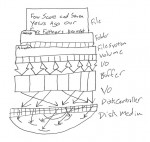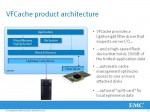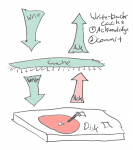A few years back, I wrote an immensely-popular series of blog posts outlining the four things that were holding storage system performance back, and the ways to fix them. At the time, I created some presentation content to go along with these posts, and even considered pulling them into a white paper, but nothing came of that. Now, however, I’m pleased to announce that my Four Horsemen are accompanying me to the stage November 10, 2015 at the DeltaWare Data Solutions Emerging Technology Summit in Edina, Minnesota.
cache
The Four Horsemen of Storage System Performance: Get Smart
The Four Horsemen of storage system performance cannot be denied, but they do offer a clear path forward. Storage systems must improve in many different areas, from spindles and drives to caching and I/O bottlenecks. But above all else, storage systems must become smarter in order to become faster, and this requires greater insight into the true nature of the data stream being stored. All storage performance developments, from the laptop to the enterprise, boiled down to adaptations to the demands of the Four Horsemen.
EMC VFCache (aka “Project Lightning”) Is One Small Step, But an Important One
EMC VFCache (née Project Lightning) is a fairly simple offering: A server-based PCIe flash card that acts as a read cache with no integration with storage arrays or hypervisors. But EMC’s entrance into the host-based flash storage market is a powerful demonstration of the wave of disruption caused by flash-based storage and high-performance computing.
The Four Horsemen of Storage System Performance: I/O As a Chain of Bottlenecks
It is tempting to think of storage as a game of hard disk drives, and consider only The Rule of Spindles. But RAM cache can compensate for the mechanical limitations of hard disk drives, and Moore’s Law continues to allow for ever-greater RAM-based storage, including cache, DRAM, and flash. But storage does not exist in a vacuum. All that data must go somewhere, and this is the job of the I/O channel.
The Four Horsemen of Storage System Performance: Never Enough Cache
Perhaps the previous discussion of spindles left you exhausted, imagining a spindly-legged centipede of a storage system, trying and failing to run on stilts. The Rule of Spindles would be the end of the story were it not for the second horseman: Cache. He stands in front of the spindles, quickly dispatching requests using solid state memory rather than spinning disks. Cache also acts as a buffer, allowing writes to queue up without forcing the requesters to wait in line.




